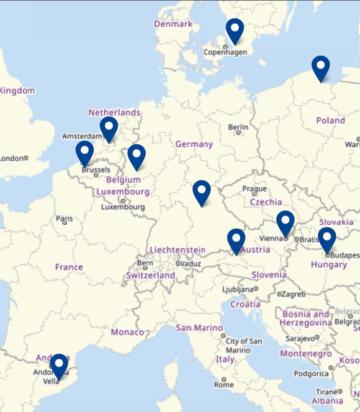Help us make the FRA website better for you!
Take part in a one-to-one session and help us improve the FRA website. It will take about 30 minutes of your time.

EU Charter of Fundamental Rights
Άρθρο 54 - Απαγόρευση της κατάχρησης δικαιώματος
Καμία από τις διατάξεις του παρόντος Χάρτη δεν πρέπει να ερμηνεύεται ως συνεπαγόμενη δικαίωμα επίδοσης σε δραστηριότητα ή εκτέλεσης πράξης που αποσκοπεί στην κατάλυση των δικαιωμάτων ή ελευθεριών που αναγνωρίζονται στον παρόντα Χάρτη ή σε περιορισμούς των δικαιωμάτων και ελευθεριών ευρύτερους από τους προβλεπόμενους σε αυτόν..



